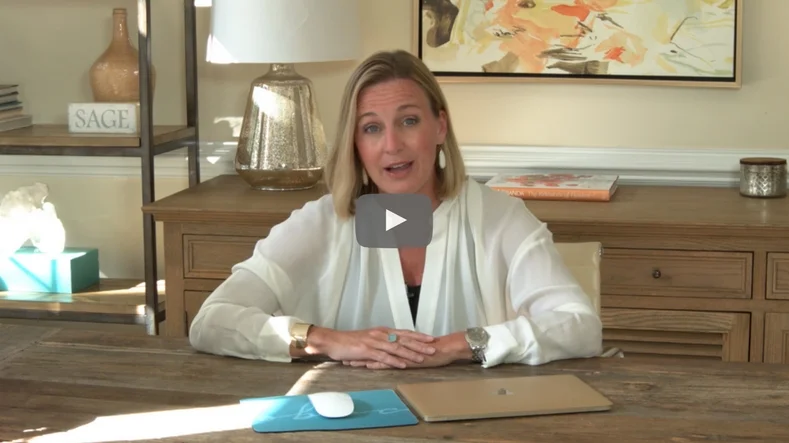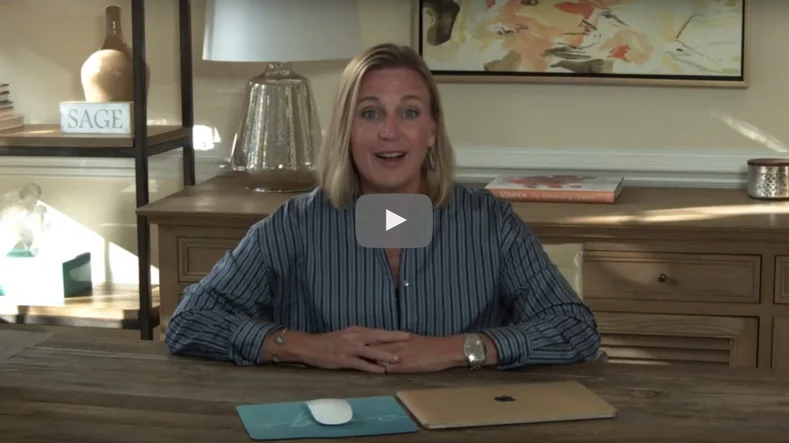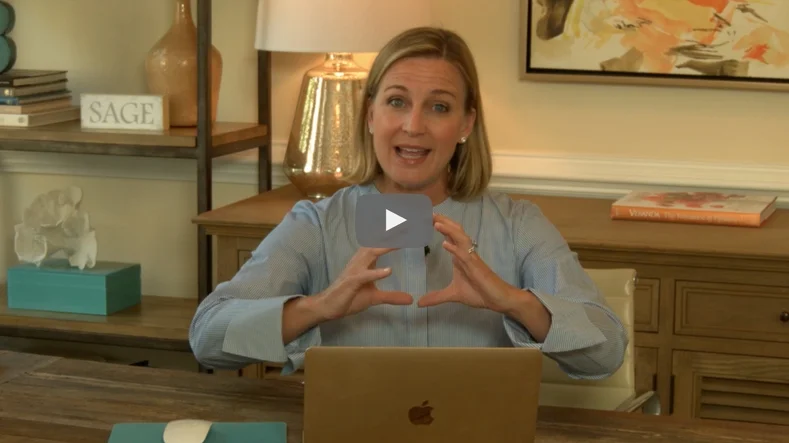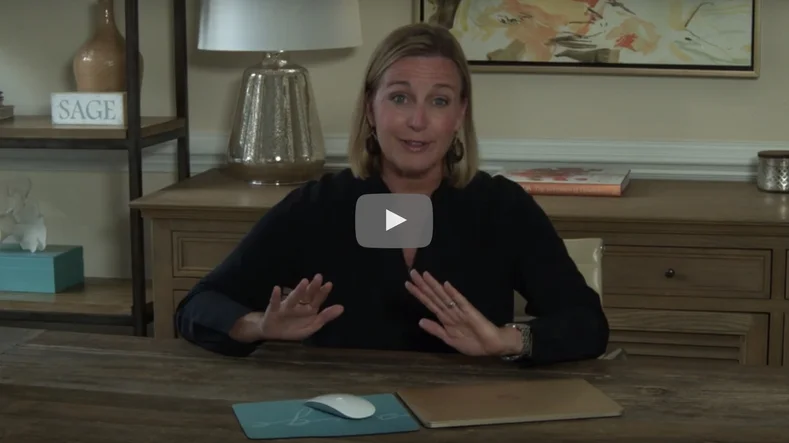The Biggest Myth About Using Live Event Room Blocks
Hi there, I'm Bari Baumgardner, founder of Sage Event Management, and today, I want to talk to you about some myths in the event industry, and more importantly, myths that lead to big mistakes a lot of event hosts make.
So for the next three weeks of my videos, I will be pointing out a few of these different myths. And the one we're going to talk about today completely revolves around room blocks.
How This Live Event Room Block Myth Came About
This all came to me because I was talking to one of our new clients about her signature event, which is her three-day live event that Sage is going to be helping her produce. And, over the course of the conversation, she started mentioning that she has a Mastermind, and she wanted to attach the Mastermind meeting to her signature event, which is great, we have no problem with that, if you are a sophisticated presenter, and you are capable of doing both the Mastermind and a live event without completely depleting the gas in your engine. If you can do that, it's actually a great way to save some money.
But over the course of the conversation, she mentioned that she never takes room blocks for her Masterminds. Now keep in mind, this is an event host who has over a hundred people in her group Mastermind, right? A hundred people! So on average, she's picking up 35 to 50 rooms per night over a three night period.
Those are real numbers that really add up. But her concern was, and this is the myth, that it was too much to assume the liability for a room block for her Mastermind. And I've heard this a number of times over the last few years, and each time it kind of boggles me because the reality is, rooms help to buy down your cost with the hotel. It's actually one of the smartest investments you can make because essentially, the attendees buying the rooms pay for the meeting space that you're using to host the meeting.
The Three Ways Hotels Value Your Business
There are three ways hotels value your business. They look at the rooms, food, and beverage, and they look at rental. So for a lot of hosts, they think they're really coming out ahead by skipping the room block, paying a small amount of rental, and then they may or may not have food and beverage. But the reality is, the hotel's biggest profit maker by far is those room nights, not only because they have 75 to 80% profit margin on rooms, but also because every time someone stays in the hotel, they spend money in the hotel.
There are also additional incidentals as well, such as spa, gift shop, coffee shop, restaurant, fitness center, the internet, et cetera. All these things really start to add up and they're big revenue generators for the hotel. So hotels will reward you for taking your room block by basically eliminating the room rental, so you're not paying anything for room rental.
What About the Liability Expense if you Cancel Some of the Rooms?
Now there is liability attached if you don't sell all the rooms, then you owe the hotel the difference. There is something in our industry called attrition, and hotels generally will allow anywhere from 10 to 20% attrition on a standard room block. We always push for 20% and above, and it really does depend on the value of the business, and the number of rooms you're taking, but here's the thing. By taking a room block, you're doing a number of good things all rolled into one.
You Make it Easier for Your Attendees to Book a Room
First, when you reserve a room block, you make it much, much easier for your attendees to book a room at that hotel. They don't have to look all over town trying to find the right place to stay. Second, the hotel's going to give you a discount on the rooms that are under what we call rack rate, or the rate you would find on the internet. So the rate that's below whatever their quoted rate is on the internet or their online or phone-in reservation system.
That means you're going to get what we call a group discount, meaning your attendees pay less. So now, it's easier for them to book a room and they're paying less for that room. Additionally, if you have a lot of out-of-towners coming to your event, they're all most likely going to need a room. So why not make it easy for them to stay at your host hotel? Then not only will it give them a discounted rate, but also, when they book those rooms at your host hotel, you will no longer have to pay rental. Or, if you're paying food and beverage, you'll pay less in food and beverage.
There's Also Another Advantage of Using Live Event Room Blocks
The other upside to this is now, all of a sudden, you're building a history of your room block. And this trackable history from event to event allows you to predict the type of room usage you would have in the future, and to really limit your liability. If you have a predictable pattern, for every "X" number of attendees, you pick up "X" number of rooms, then you've really limited if not eliminated the liability of taking on the room block with the hotel.
If you would like more information about saving (and making) money at your next event, get this FREE 3-part insider video series about how to monetize live events. SAGE has over 25 years of experience in effectively coordinating live events. And more than 14 years of proven results in monetizing live events that generate money! We are a proven brand builder. So why not let us show you just how spectacular your next event can be.
What About Live Event Room Block Minimums?
Now, one quick thing for you to know, is hotels do like for you to have a minimum of 10 rooms per night. They're not really interested in going through all the difficulties of setting up a room block if you're taking less than 10 rooms a night. But for 10 rooms a night and above, they'll absolutely give you a group discount, and they'll absolutely reduce, if not eliminate your rental, and they'll absolutely reduce your food and beverage minimum as well.
And again, your attendees need the rooms anyway, that means your attendees are going to be paying for those rooms. So essentially your attendees are paying for your meeting to happen at the host hotel, all while making it easier for them and easier for you.
There's really no downside to this, as long as you're being super careful about the numbers. However, if you're not sure, I recommend you be conservative on the first go-round. If you think you'll pick up 20 rooms, go for 10. If you think you'll pick up 50 rooms, go for 25. It's always easier to add rooms than it is to try and give them back and pay for unsold rooms. So you really want to be conservative on the front end, until you can establish that history.
A Quick and Easy Way to Estimate The Number of Rooms You'll Need
Here I will share with you a quick little tip. At SAGE, we typically take the number of attendees we think are going to attend the event, reduce that number by the number who are local, and then divide that number by two. That tends to be a pretty good estimate, a pretty good conservative estimate, so let's do the math.
You have a hundred people, twenty are local, so that brings you down to eighty and eighty divided by two is forty. Your rooms per night would be forty. And this is even safer for you, because you have 10 to 20% attrition, meaning, you can drop 10 to 20% of those rooms per night. Now that's going to be four to eight rooms per night. So you'd really only have a liability of 32 room nights for a meeting of a 100 people. That's some quick, easy math to help you if you're trying to figure all this out for the first time.
I encourage you to check out some of our other helpful videos. You can do that by going to our video blog here.. There you'll see videos like this one, including the videos we're about to post over the next two weeks. On the new videos, we are going to share two other myths we frequently see. Ones that cost you real money and make it more difficult for you to hold an event, and ones that make it harder for your attendees, so stay tuned for those.
The Bottom Line
Here's a quick recap of everything we've discussed. If you're going to be hosting a meeting where you need 10 or more room nights per night, you do want to take a room block, you do want to be conservative, and you do want to work with the hotel to get value for those rooms.
You want a discounted room rate, you want an easy link for attendees to book their room to make it quick and easy for them, and you want the ability to drop 10 to 20% of those rooms with no liability. And then you want to make sure you're tracking them, so you fill those rooms. You also want to nudge those attendees to actually stay at the host hotel and in your room block.
With all those things done, your attendees will have a much better, easier time at your meeting, and they will be the ones who are paying for it.
You can do this! Go, team, go!
Get this FREE 3-part insider video series about how to monetize live events.





